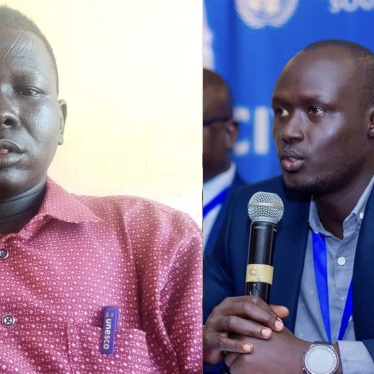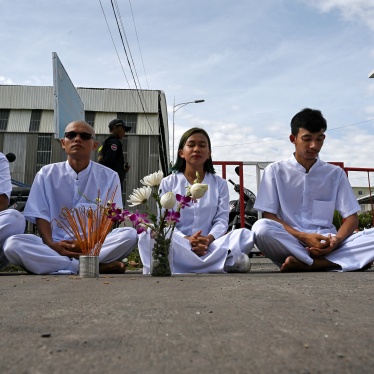We commend the Special Rapporteur for her last report and her tireless efforts during her tenure to bring attention to the egregious rights situation in Eritrea.
These include arbitrary detention, torture, sexual violence, enforced disappearances, and religious persecution, among other abuses, as well as the indefinite conscription of Eritrea’s citizens and the use of conscripts in forced labor.
This Council has urged Eritrea to end these practices and allow international and regional human rights bodies, including Special Rapporteurs, unhindered access to the country to monitor progress.
Unfortunately, the Eritrean government has again ignored the Council’s concerns. At the Council’s last session in March, the Deputy High Commissioner presented an update, noting some increased engagement by the government, while underlining that there is a difference between engagement and progress. As she stated:
“The test of the merits of our engagement with Eritrea – like Eritrea’s commitments at the international level – lies in whether or not they produce concrete human rights improvements for the people of Eritrea.”
As the Special Rapporteur’s report makes clear, the situation in Eritrea remains unchanged. Prisoners remain jailed without trial, indefinitely, and sometimes incommunicado. Torture in detention continues. Endless conscription and the raft of ensuing abuses still obstruct the rights of Eritreans, including youth.
But it doesn’t have to be that way. The Eritrean government has regularly used the “no peace, no war” situation with neighboring Ethiopia as a justification for the indefinite nature of national service.
While it is too early to tell if the recent potential for a rapprochement between Ethiopia and Eritrea could result in changes to Eritrea’s indefinite national service practice, there is an opportunity for Eritrea to turn the page. We urge the Council to renew the mandate of the Special Rapporteur under item 4, for Eritrea to cooperate with the incoming mandate-holder, including by allowing unhindered access to the country, and for the mandate-holder to work with the government to identify reform benchmarks and a time-bound implementation plan to give effect to the recommendations in the Special Rapporteur’s reports and those of the COI, including on accountability.
Until the current abuses are brought to an end, we join the Special Rapporteur in urging the Council to recommend that all countries permit fleeing Eritreans to lodge asylum claims and adhere to the principle of non-refoulment. For many Eritreans, fleeing the country remains the only way to avoid their government’s brutality.






